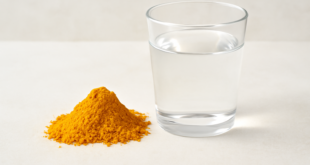
Healthy Microbiome Naturally
Your gut is home to trillions of tiny organisms. These microbes are vital for digestion, immunity, mood, and overall well-being.
A balanced microbiome supports your health in countless ways. When it’s imbalanced, you might feel tired, bloated, or even anxious.
Let’s explore seven simple and natural ways to take care of your gut microbiome every day.
1. Eat More Fiber-Rich Foods
Fiber feeds the good bacteria in your gut. It helps them grow, thrive, and do their job properly.
Great sources include beans, lentils, whole grains, and vegetables. Try adding more color to your plate at each meal.
Fruits like apples, bananas, and berries are high in fiber too. Aim for at least 25–30 grams of fiber daily.
2. Add Fermented Foods to Your Diet
Fermented foods are packed with beneficial live bacteria. These natural probiotics help balance and strengthen your gut microbiome.
Yogurt, kefir, sauerkraut, kimchi, miso, and kombucha are great options. Start with small portions and build up slowly.
These foods can boost digestion and reduce bloating. They also support immune health and reduce inflammation naturally.
3. Avoid Unnecessary Antibiotics
Antibiotics can destroy both good and bad bacteria. This can leave your gut microbiome weak and out of balance.
Only take antibiotics when truly needed. Follow your doctor’s advice and avoid overuse of antibacterial products at home.
After antibiotics, eat probiotic foods or take a supplement. It helps restore good bacteria faster and protect your gut.
4. Reduce Daily Stress
Chronic stress harms your gut and its microbes. It can increase inflammation, change your digestion, and reduce microbial diversity.
Simple stress-relief habits help restore balance. Try meditation, breathwork, journaling, or spending quiet time in nature.
Even five minutes of deep breathing can calm your gut. A relaxed mind supports a healthier microbiome connection.
5. Get Quality Sleep Every Night
Sleep and gut health are deeply connected. Poor sleep can disrupt your gut bacteria and lead to mood or digestion issues.
Aim for 7–9 hours of restful sleep each night. Try to keep a consistent bedtime, even on weekends.
Limit screens before bed, and avoid caffeine late in the day. Darkness and quiet help your brain and gut reset.
6. Exercise Regularly (But Don’t Overdo It)
Moderate physical activity improves gut health. It increases microbial diversity and supports digestion and overall wellness.
Walking, dancing, or yoga just 30 minutes daily helps. Your gut loves movement, especially when it’s consistent and gentle.
Avoid extreme workouts that cause stress. Too much strain can have the opposite effect and upset your gut balance.
7. Cut Back on Processed Foods and Sugar
Ultra-processed foods and sugar can harm your gut microbiome. They feed harmful bacteria and increase inflammation in the body.
Avoid sodas, artificial sweeteners, fried foods, and packaged snacks. Read labels and choose real, whole ingredients whenever possible.
Healthy fats like olive oil and avocados are gut-friendly. Whole foods support healing and help good bacteria thrive.

Final Thoughts: Your Microbiome, Your Health
- Your gut microbiome affects how you feel every day. When it’s balanced, your digestion, energy, and mood all improve.
- Supporting your microbiome naturally doesn’t have to be hard. Start small and add healthy habits one step at a time.
- Eat fiber, move your body, sleep well, and manage stress. These simple steps build a strong foundation for gut health.
With a little daily care, your microbiome will reward you. Your gut is your ally—nourish it, and it will thrive
Most Related: https://nutritionnest.site/wp-admin/post.php?post=526&action=edit
 healthybodyboost.net Healthy Body Boost
healthybodyboost.net Healthy Body Boost



